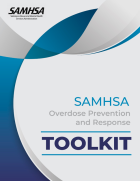Dashboard: Filter Bricks
Main page content




This report provides background history of the development of Peer Recovery (PR), including an overview of the current landscape of PR Programs. This report also provides a description of the variation in peer recovery rates, supervision, credentialing, and substance use disorder vs mental health.

This Advisory outlines how healthcare providers (i.e., obstetrician-gynecologists [OB-GYNs], primary care physicians, and other professionals who treat pregnant people) can take an active role in supporting the health of pregnant individuals who have OUD and their babies.

This report looks at state and federal laws and policies that encourage braided funding to provide substance use disorder services, best practices for braiding funds, and pathways to sustainability for substance use disorder programs.

This report provides an update on the present state of coverage, availability of, and access to, medications for treating ongoing alcohol use disorder (AUD) and opioid use disorder (OUD) and reversing an opioid overdose within state Medicaid plans. It also includes examples of innovative efforts to increase access to medications for the treatment of SUDs.


This new consumer guide offers people with past or current problematic substance use a straightforward exploration of the roles, values, and work environments of professional peer specialists. This guide is a comprehensive resource that will help readers understand who professional peer specialists are, what they do in various work settings, and how to access and pay for their services. Through visual aids illustrating the integration of peer specialists into the treatment and recovery landscape and practical forms readers can fill out, this consumer guide will help facilitate a strong start toward collaboration with a peer specialist.

The Advisory outlines the principles and components of low barrier care, and how low barrier care may be leveraged to overcome substantial gaps in access, while also engaging individuals in treatment.
Displaying 1 - 10 out of 178

